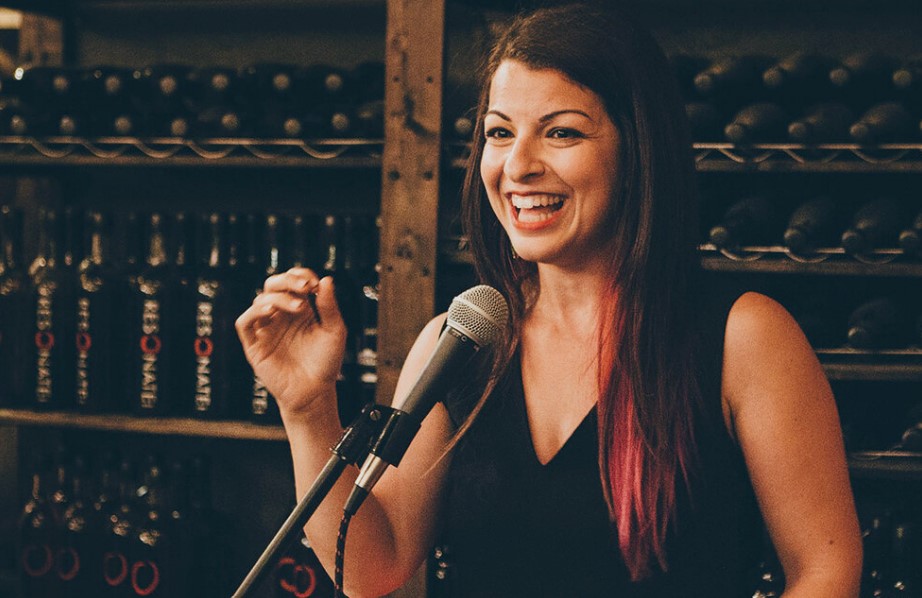
For personal reasons, I was unable to get to the Game Developer Conference this year. If I’d been traipsing the halls of San Francisco’s Moscone Center, it’s sure I’d have gone to Anita Sarkeesian’s presentation, Your DEI Initiatives Are Making Your Culture Worse, and reported on her views, which I always find to be invigorating and enlightening.
Thankfully, my friends at Game Developer and at Gamesindustry.biz sent journalists to cover Sarkeesian’s presentation. I’m grateful to Sam Machkovech and Brendan Sinclair for doing the good work of reporting her views. I think it’s important to share what Sarkeesian had to say as widely as possible.
Sarkeesian is executive director of Feminist Frequency. Over the past 12 years or so, her work on gaming content and industry practices has helped transform our understanding of gaming’s place in the wider societal and cultural context of misogyny, racism, homophobia, and classism.
DEI stands for Diversity, Equity, and Inclusion. Gaming has long been dominated by particular demographics (mainly, expensively educated white men), at the expense not only of plain fairness and justice, but also of diverse output that represents society as a whole. Her talk critiqued the way many games companies pay lip service to this important issue, or how they err in their approach to reform.
Here are a few of Sarkeesian’s quotes from the two stories that I mentioned above, which are here, and here.
“Diversity, equity, and inclusion efforts are framed as attempts to transform workplace environments into a space that is welcoming for all people, especially those historically under-represented. I’m not here to tell you that DEI is broken; I’m here to tell you that DEI is working as intended and that that’s the problem.”
—
“Some [companies] were doing this with a sincere hope for making their studios a better place to work for their marginalized workers. Some of them were doing it as a performative response to social pressure.”
—
“A DEI manager I admire told me, ‘DEI is often a panacea. It is the corporate embodiment of a watered-down liberatory movement. It is an attempt to produce equity in a system that is fundamentally inequitable and resists equity.'”
—
“People make systems, and systems make people. We have to think beyond an individual level and understand that this isn’t about removing a couple of bad actors. But there’s also the matter of a ‘path of least resistance.’ It is so much easier for a corporate board or C-suite to continue operating in the same way they have for decades, rather than approach change with curiosity and excitement, because there’s a lot of dollars on the line.”
—
“Harm does not happen in a vacuum. When something unacceptable happens, it’s not enough to accuse a few involved parties. We must look at the conditions that allowed this to happen. What roles did everyone else around them play? Who was complicit? What in our culture modeled and rewarded this behavior? What systems of power and oppression are present in these dynamics? We need to break cycles of harm and prevent future violence. It’s not enough to respond only to the current incidents of harm that happen now. Are we trying to brush this under the rug again? Or are we doing anything to prevent this from happening again?”
—
“Instead of zero tolerance policies … what would it feel like to hear, ‘Harassment, abuse, and assault has happened here. People were hurt and treated in ways that are not acceptable. The individuals are responsible, but so are we as the culture and community that allowed it to happen. Here’s how we’re going to start changing the way we talk about and look out for these things’?”
—
“We seriously need to skill ourselves up – create stronger ways of being connected to each other, healthier relationships, de-escalation skills, communication skills, expressing feelings in non-destructive ways, and put the work into unlearning toxic narratives and beliefs. Every little decision you make, every case you handle, you’ve got to look at it through all of these lenses.”
—
“We need to usher in a workplace where, when a marginalized person is talked over in a meeting, when an inappropriate joke is made, when a character rooted in harmful stereotypes is pitched, there are clear avenues to surface these issues without retaliation and retribution, or shaming and silence.”
—
Note – Anita Sarkeesian is an organizer of the Games and Online Harassment Hotline – a free, text message-based, confidential emotional support hotline for anyone involved in gaming.
Colin Campbell has been reporting on the gaming industry for more than three decades, including for Polygon, IGN, The Guardian, Next Generation, and The Economist.
 GameDaily.biz © 2025 | All Rights Reserved.
GameDaily.biz © 2025 | All Rights Reserved.